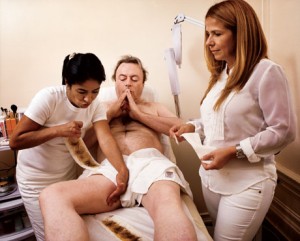 Today, December 15th, 2012, is the one-year anniversary of the death of Christopher Hitchens, and I have finally managed to bring myself to read the series of essays he wrote from his hospital bed detailing his thoughts and experiences as he underwent treatment for esophageal cancer and faced, head on, the prospect of his own premature demise. I must begin by thanking my sister, who gifted this book to me, and without whose intervention I would probably have delayed reading it even longer.
Today, December 15th, 2012, is the one-year anniversary of the death of Christopher Hitchens, and I have finally managed to bring myself to read the series of essays he wrote from his hospital bed detailing his thoughts and experiences as he underwent treatment for esophageal cancer and faced, head on, the prospect of his own premature demise. I must begin by thanking my sister, who gifted this book to me, and without whose intervention I would probably have delayed reading it even longer.
It is a peculiar curiosity of readers that we are polyamorous, in the truest sense of the word. Favorite authors and characters, people we have never met, or spoken to, or who may not even exist, at least in the corporeal sense, cannot be separated in importance from friends and family. For me, at least, the majority of these figures either never existed or have so long been in the ground that their deaths are as much a part of their identities as their lives. Not so with Christopher Hitchens, whose life, illness and demise not only overlapped with my own but were particularly public; we – I – shall mourn his loss for a long time to come.
Reflecting on the past year, I cannot help but feel cheated. Not a single month passed without some issue of global importance that needed his commentary, his indignation and his wit. The world once more took up the issue of free speech, and once more the voices of secularism and liberty were cowed into silence by an ancient and powerful religion backed by armed thugs and medieval notions of equality and justice. Without Hitch to excoriate us, we are destined to pay a steep price for this silence.
Which brings me to Mortality. Hewing to his commitment to write about “absolutely everything except sports,” Christopher agreed to document his experiences with cancer for the pages of Vanity Fair. Holding the small volume in your hand, which does not manage to crack the 100-page mark without help from an afterword by his wife, Carol Blue, is a sad and poignant reminder of the brevity of his fight and the transience of life: barely a year elapsed between his diagnosis and demise.
The book begins on an uplifting note, with a foreword by Graydon Carter, Hitchens’ editor at Vanity Fair and the man who commissioned the work. He reminisces about one of their more famous collaborations, in which Christopher was to complete a three-part series on self-improvement, culminating in a visit to a waxing parlor “for what they indelicately call the ‘sack, back and crack'” treatment. Hitchens’ reply? “In for a penny…” The attached photo – not in the book – should provide ample testament to his commitment to journalism, and I suspect, if asked which of his assignments caused him the most pain, this waxing session would run a close second to being water-boarded.
When Hitchens takes over, he begins with the first signs of illness – coming just as his memoir, Hitch-22, ascends to the top of the best seller lists – culminating in his diagnosis. “I see it as a very gentle and firm deportation, taking me from the country of the well across the stark frontier that marks off the land of malady.” Of this new land, he has mixed feelings. There is, to recommend it, a lot of smiling, empathizing and patience but, detracting somewhat, “the humor is a touch feeble and repetitive, there seems to be almost no talk of sex, and the cuisine is the worst of any destination I have ever visited.” This humorous insouciance does give way, occasionally to moments of clarity, recognition and even sadness, but more often to digressions about religion or philosophy; there are precious few sentences that strike at the heart of the matter or personalize his plight in, I suspect, the way his readers might have hoped.
The afterword, beautifully written by his wife, explains his reticence at divulging too much in the way of personal details and respecting the difficulties of his family as they struggle to come to terms with his condition. I opened this book expecting to weep for a dead friend, but it was not until his wife’s closing remarks, giving a small glimpse into what it was to be married to such a remarkable man, that I found the kind of insights he deliberately denied his readers. I take solace the only way we can: in the works he left behind and in the example he set. Farewell.
